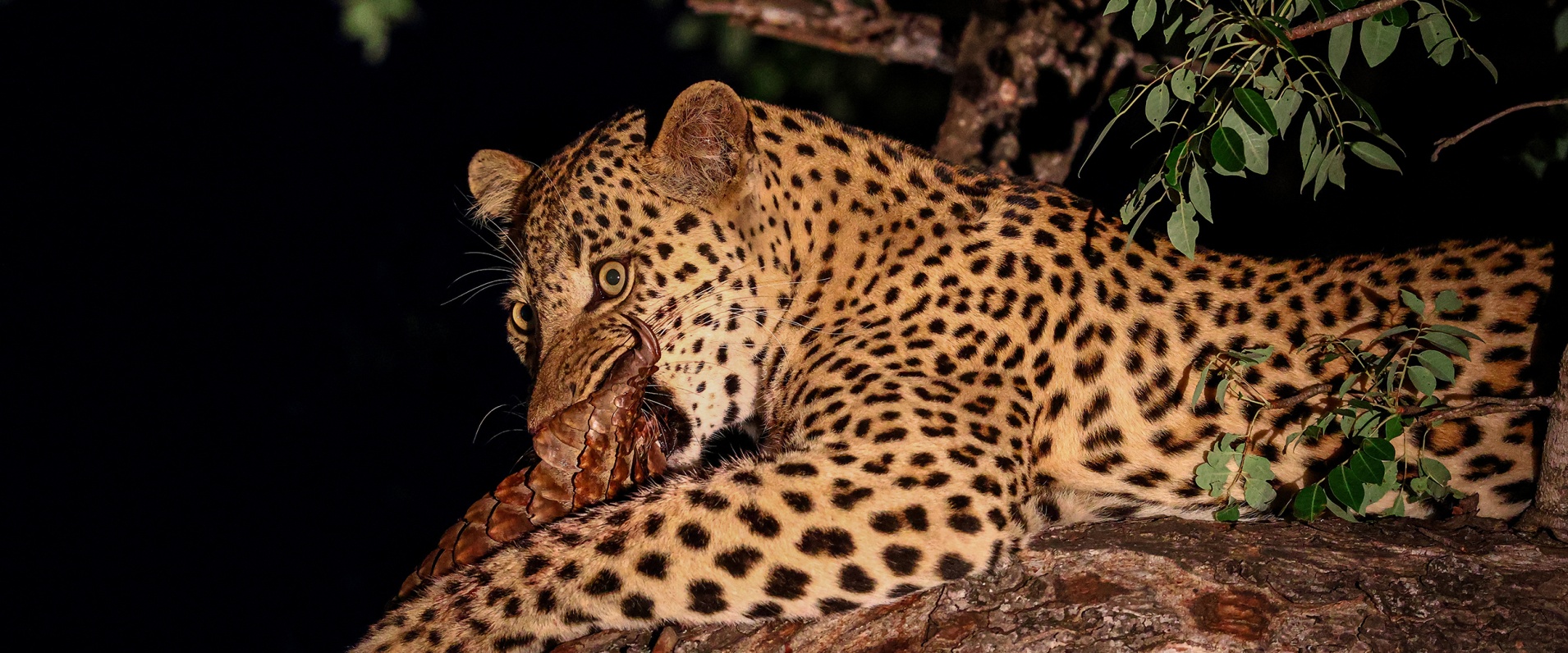A Once-In-A-Lifetime Sighting
on Jan 14, 2025As guides, we have the privilege of witnessing incredible sightings every day. After several years of guiding at a remarkable place like Sabi Sabi Private Game Reserve, it’s easy to feel as though you’ve seen it all. Yet, nature has a unique way of surprising us, consistently offering moments that are both extraordinary and rare - experiences you may only encounter once in a lifetime.
On this particular afternoon, we set out for a relaxed drive through the southern section of our reserve, planning to enjoy sightings of general game with a few added bonuses like elephants and rhinos. As we crossed a small open area, we spotted a young male leopard resting on a termite mound. We approached slowly, observing his calm demeanour as he surveyed his surroundings. This leopard is still familiarising himself with the lay of the land, an area where we've had regular sightings of him. For now, he is referred to as the Nkuwa male, after his mother, as we await the day he establishes his own territory and earns a name of his own. Hopefully, he will continue to stay in this area and one day claim it as his home.
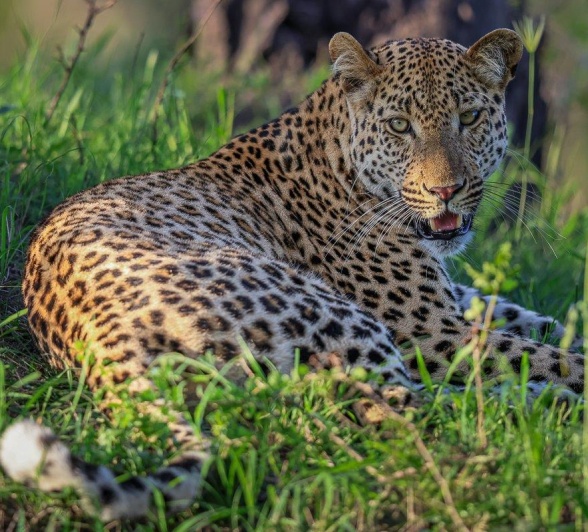
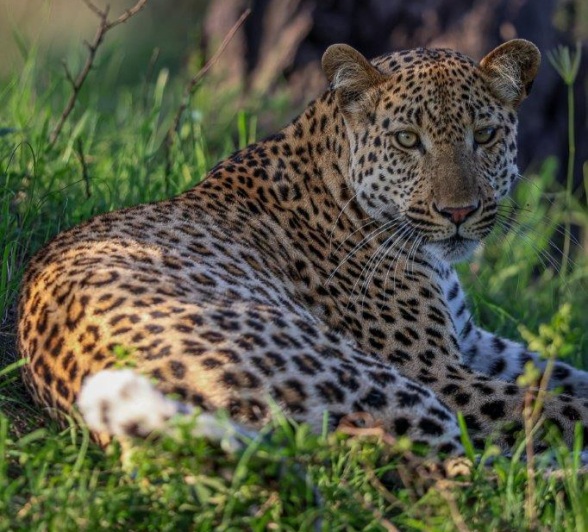
As the temperatures dropped further and the late afternoon light began to fade, the young leopard gradually became more active. He moved through the thickets, stopping every now and then to smell, listen and look, making sure he left no opportunity unchecked. We followed him as he navigated the dense bush. Suddenly, his posture shifted, signalling intense focus on something ahead. However, with the tall grass and lush vegetation typical of this time of year, we couldn’t see what had caught his attention. Respecting the delicate balance of nature, we decided to maintain our distance, ensuring we didn’t interfere or alter his natural behaviour.
He began his stalk with deliberate precision, inching forward and pausing every few seconds. It was clear that his target was close, concealed within the tall grass. The telltale signs were all there - his ears pinned back against his head, his body taut with anticipation. Suddenly, he leapt into the grass, disappearing in a flurry of motion.
For a moment, we could only watch in suspense. There was no distress call to give away what had happened, leaving us unsure of the outcome. The leopard rolled briefly, then stilled. Everyone held their breath, captivated by the unfolding drama.
Eventually, he rose slowly, glancing around before lowering his head again into the grass, where he began licking his prey. Even then, we couldn’t yet identify what he had caught. Moments later, the mystery unravelled, and to our surprise, we finally saw what he had killed.
A Temminck’s Ground Pangolin!
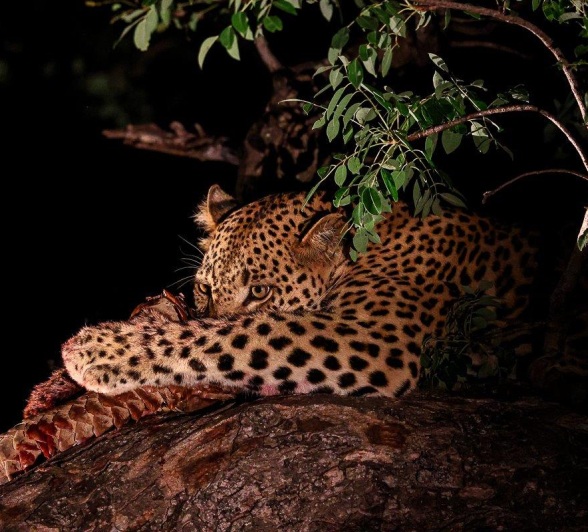
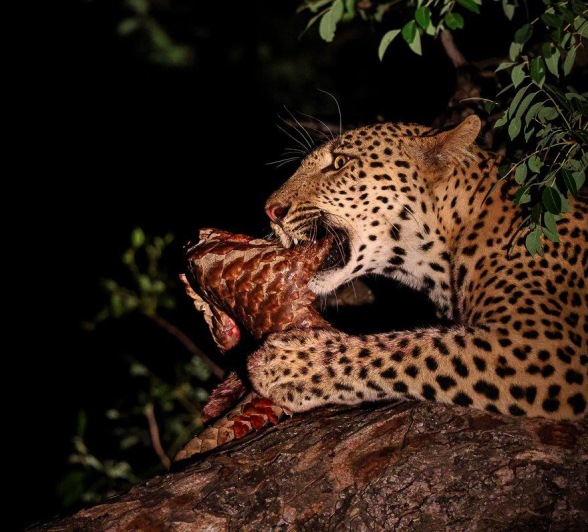
The excitement was extremely high, mixed with a wave of emotions, as pangolins are the most trafficked mammals in the world. Their keratin scales are exploited in much the same way as rhino horn, driven by cultural beliefs in their supposed medicinal value. In some countries, pangolins are also consumed as a delicacy, further threatening their survival.
Finding a pangolin in the wild is an extraordinary rarity, so much so that even some seasoned rangers may go their entire careers without ever seeing one, never mind seeing a leopard and pangolin in the same sighting.
While this was an incredibly emotional sighting, it’s important to accept and understand that this is the reality of nature. Animals kill to survive, without awareness of what is endangered or not. Unfortunately, it is human activity, not nature itself, that has led to the endangered status of many species. As such, we do not have the right to intervene or alter the natural course of events. What we witnessed is a fundamental part of life in the wild, and it is completely natural for the animals living here.
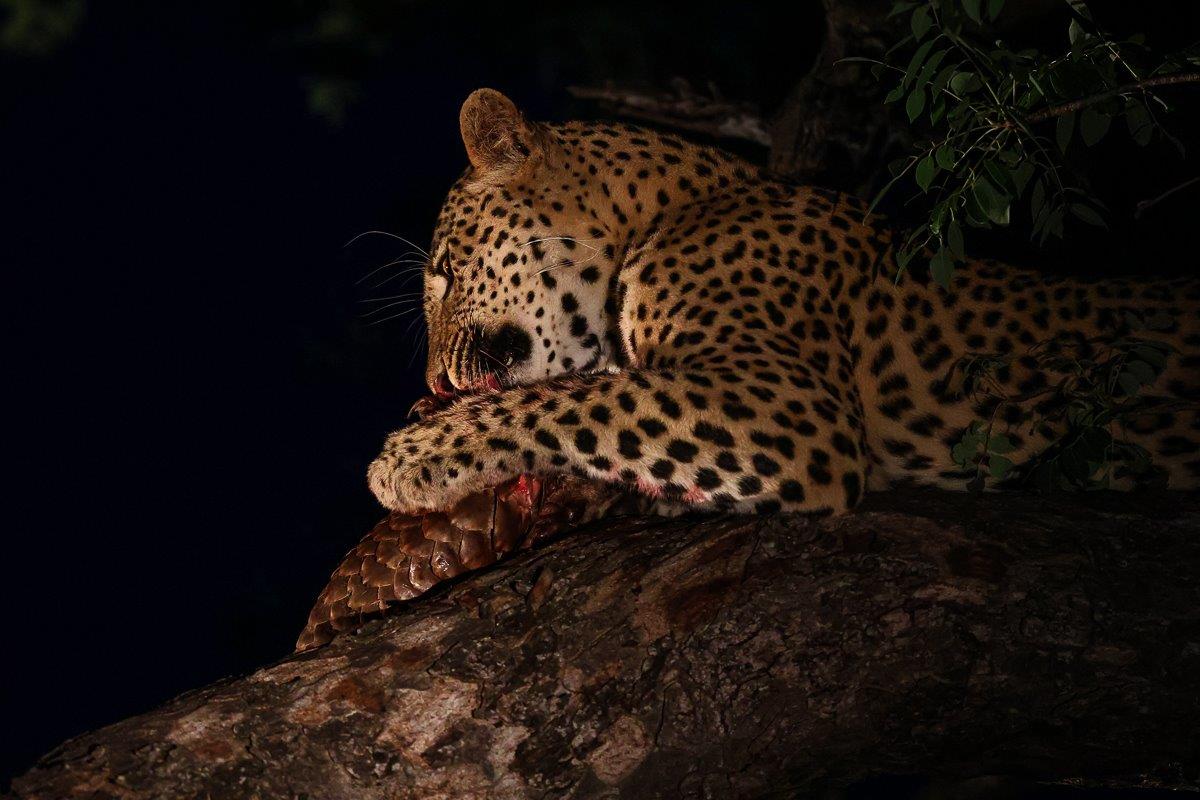
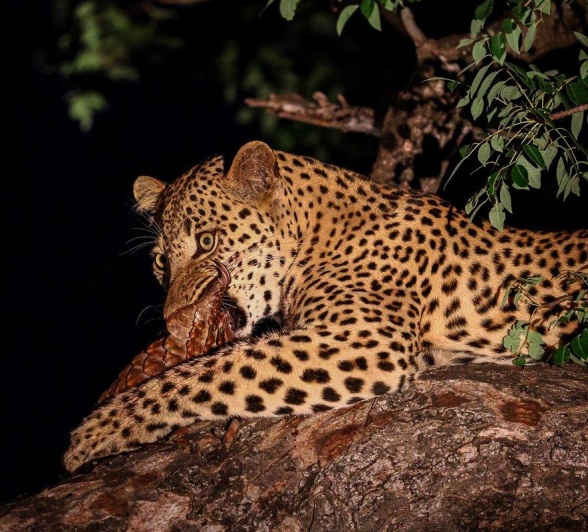
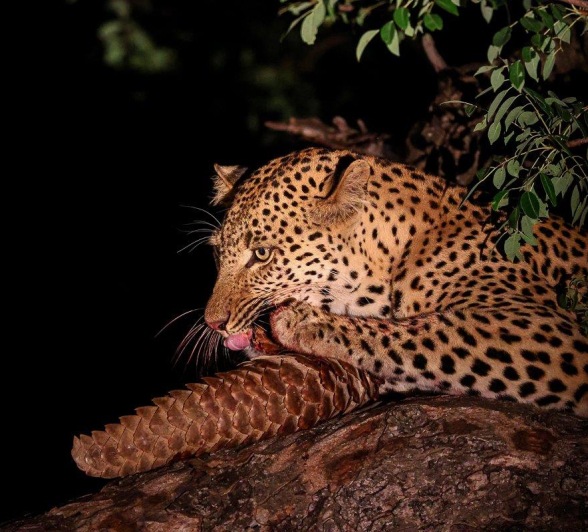
The young male leopard immediately moved toward a nearby Marula tree, where he hoisted his kill up into the branches. Pangolins are equipped with tough, armoured scales that act as a formidable defence, and when threatened, they typically curl into a ball for protection. Unfortunately, this pangolin was caught off guard and didn’t have the opportunity to defend itself, leaving it vulnerable to the leopard’s attack.
The leopard took his time, methodically working his way through the hard scales to reach the softer parts. It was a slow process, as he couldn’t bite through the thick, protective armour on the pangolin’s back. Instead, he had to carefully feed from the more accessible parts of its underbody.
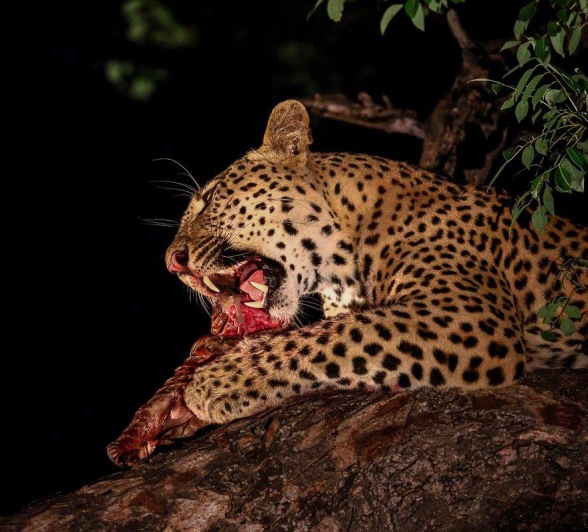
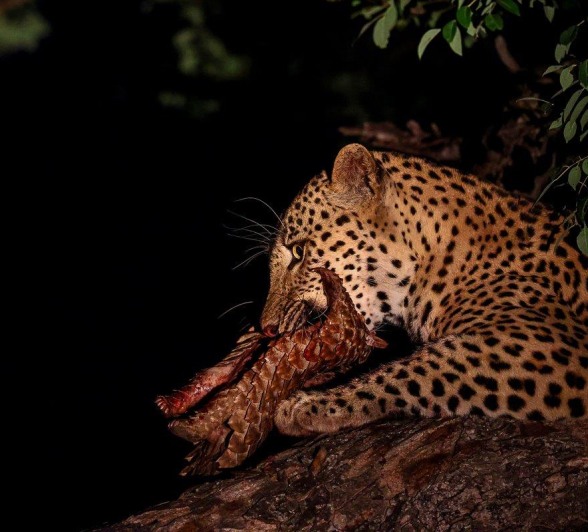
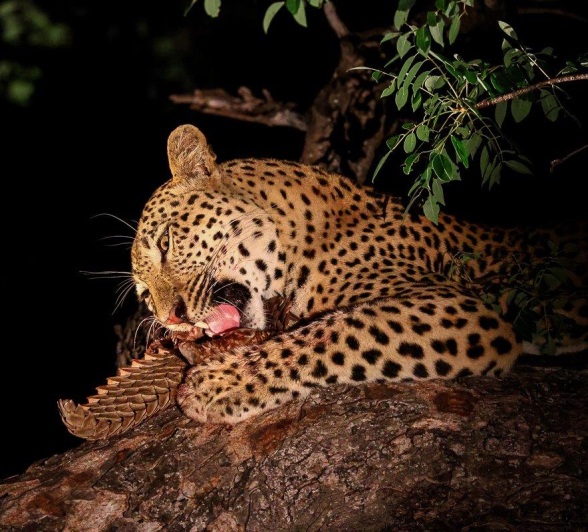
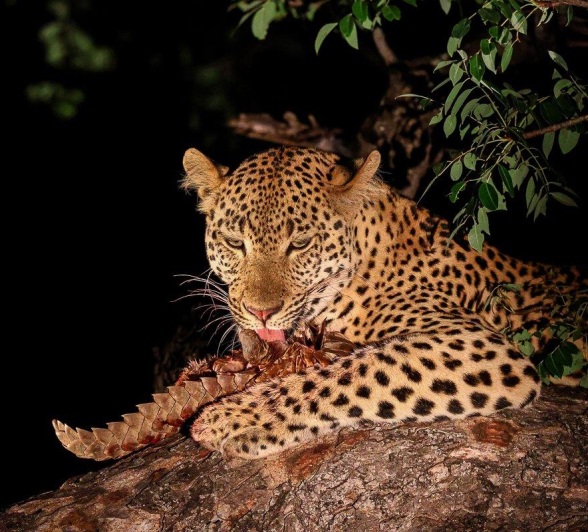
We witnessed the entire ordeal unfold before our eyes. While it was a heartbreaking moment for the unfortunate pangolin, it’s important to remember that the leopard, a skilled and fierce predator, also must hunt to survive. The way he silently stalked up on the pangolin, who had no awareness of the danger, was a testament to the leopard’s exceptional hunting and stalking abilities.
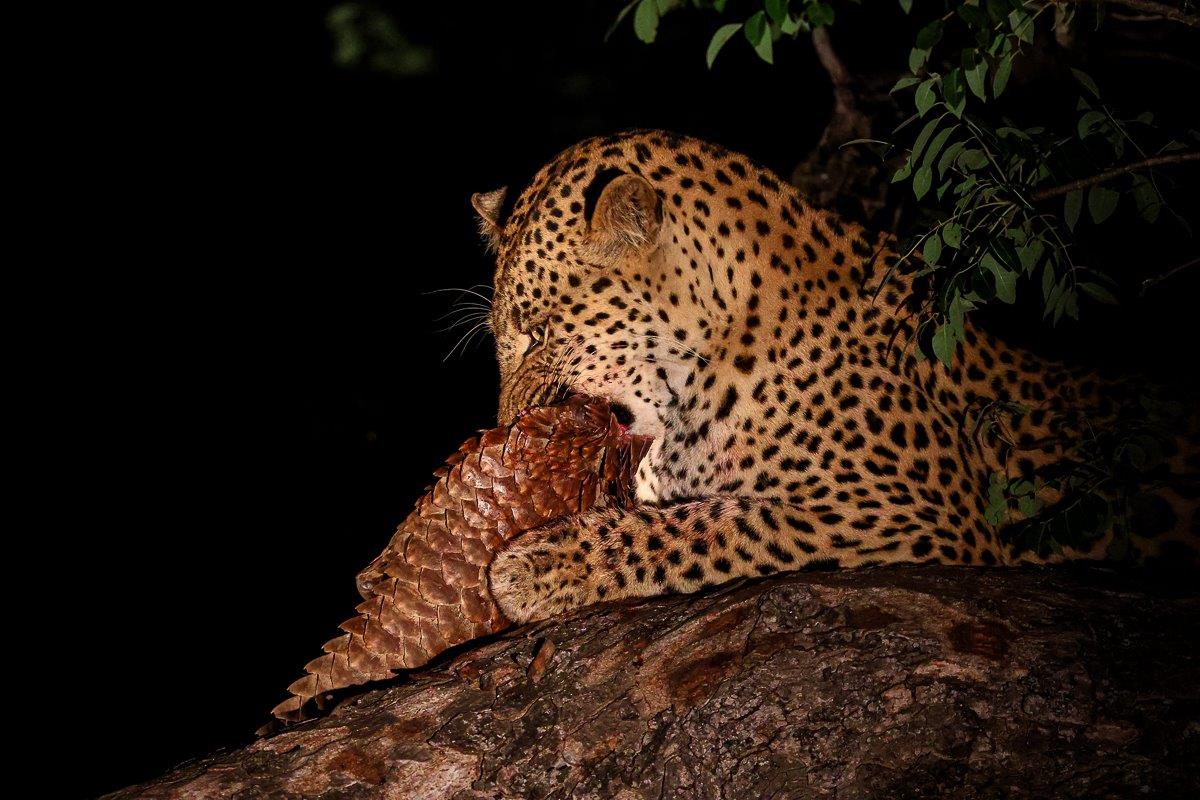
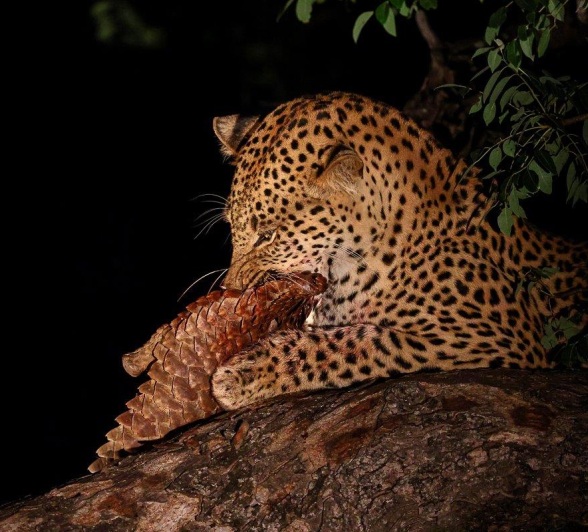
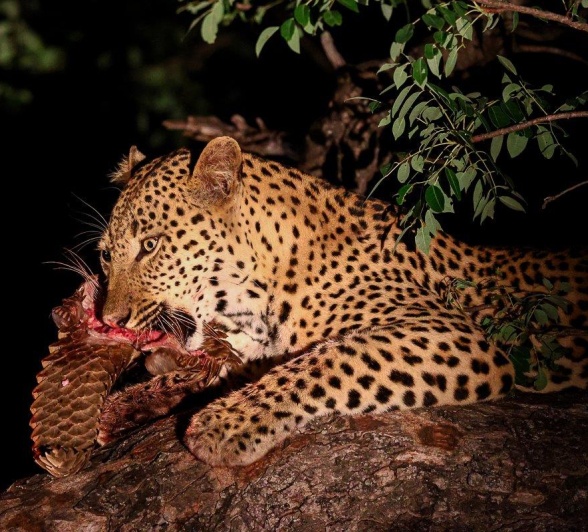
At times, nature can seem cruel and harsh, but as humans, we have no right to interfere with the natural balance or the way animals interact with one another. Pangolins often roll into a protective ball when threatened, making it nearly impossible for predators to bite through their tough scales. Yet, despite their defences, there are times when they still fall prey to the predators around them.

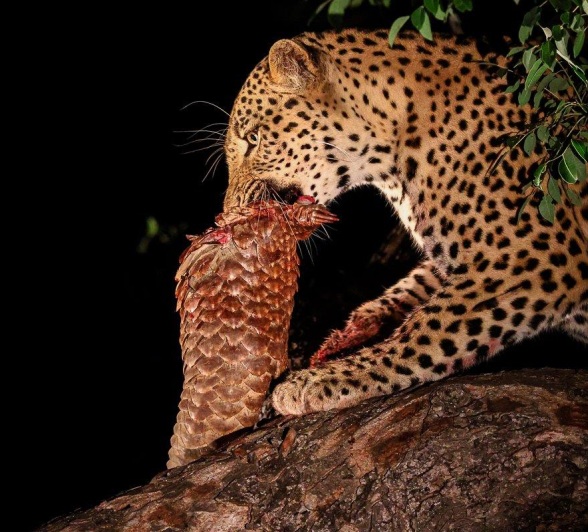
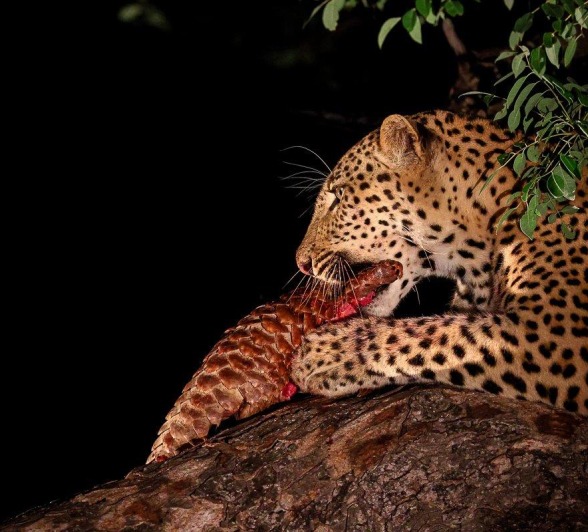
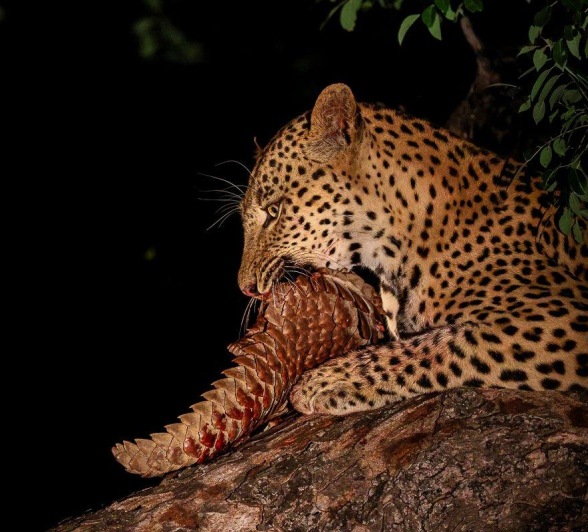
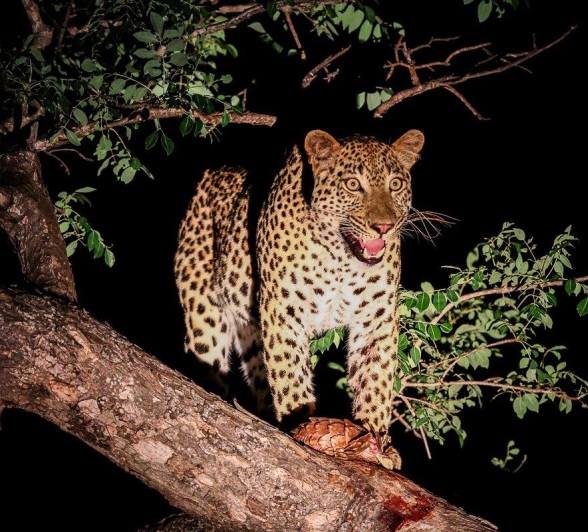
We watched as he finished his meal, calmly grooming himself afterwards. Once satisfied, he descended from the tree and slipped silently into the night, likely to seek a comfortable place to rest and perhaps some water to drink after his well-deserved meal.
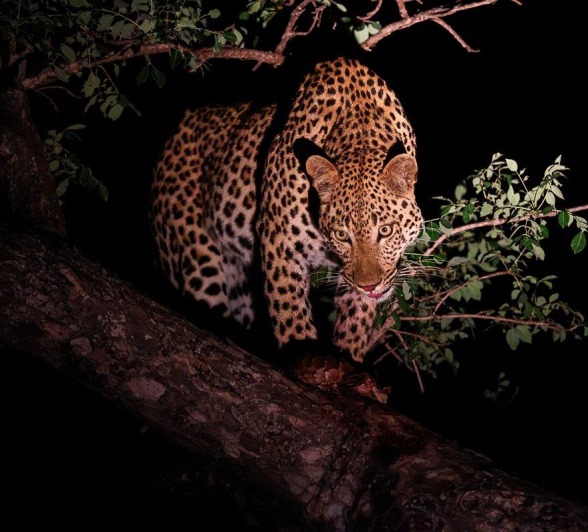
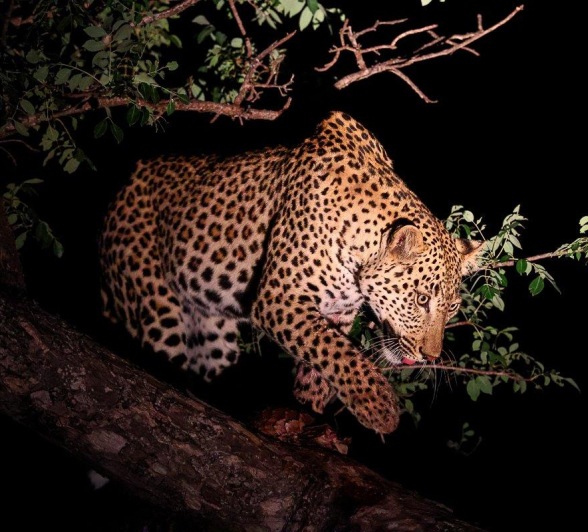
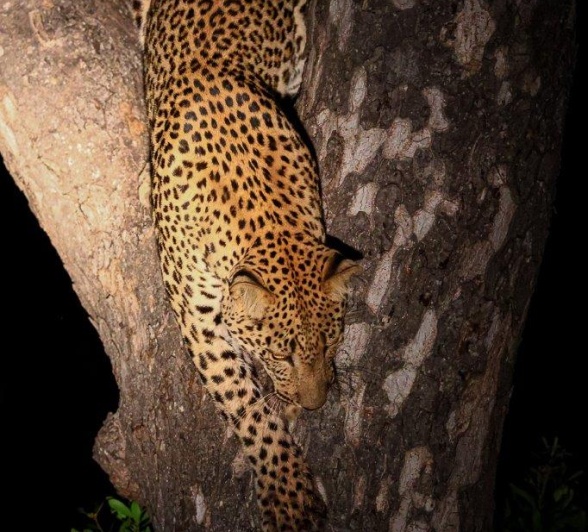
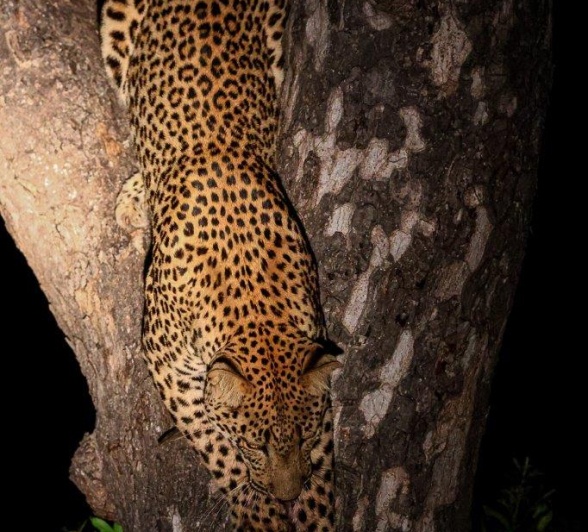
This is the kind of sighting you might only experience once in a lifetime, and I’m certain I’ll never have the privilege to witness anything like it again. It was a moment filled with mixed emotions - the exhilaration of watching the entire stalk and kill, followed by the sadness of realising that the victim was a pangolin. But this is the reality of the African bush, where only the strongest survive. We had no right to interfere, as the leopard’s instinct to kill is as natural as that of any predator, whether the prey is an impala or a pangolin.
This sighting will be talked about for years to come and will undoubtedly remain one of my personal top experiences. I am incredibly grateful to be doing what we call our job, witnessing these extraordinary moments firsthand. Some are fueled by adrenaline, while others are deeply emotional, but all are part of the natural cycle of life and the delicate balance of the ecosystem.
Blog by Ruan Mey (Earth Lodge Ranger)
